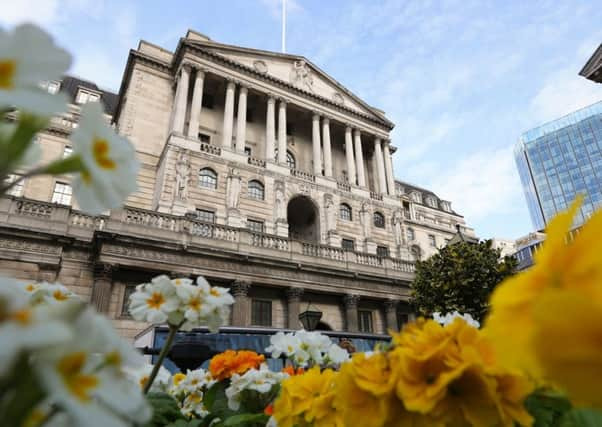BoE set to cut interest rates as recession fears intensify


Economists said it was almost certain that members of the monetary policy committee (MPC) would vote to halve rates to a historic low in a move that could signal lower borrowing costs for consumers and businesses, but trigger further pain for savers.
The Bank of England has repeatedly signalled that measures to bolster the economy are on the way, including a possible extension of its quantitative easing programme – effectively printing money to try to stimulate lending.
Advertisement
Hide AdAdvertisement
Hide AdGovernor Mark Carney signalled in the wake of the Brexit vote that rates would come down in July or August and the MPC surprised economists and investors when it kept them on hold last month.
The likely change of heart follows a raft of downbeat soundings on the state of the economy in the wake of June’s vote to leave the European Union.
Data yesterday revealed a shock contraction in Britain’s dominant services sector – accounting for almost three-quarters of the economy – for the first time since the end of 2012 and the biggest monthly fall in activity on record. It follows downbeat surveys for the manufacturing and construction sectors earlier this week.
Ben Brettell, senior economist at financial services firm Hargeaves Lansdown, said last night it was “almost certain” that rates would be cut, with financial markets pricing in a reduction from 0.5 per cent to 0.25 per cent.
Some banks have already warned that they could begin charging business customers interest even if their accounts are in the black due to the unprecedented low rates.
Any cut in rates would come despite concerns that inflation will gather pace in the months ahead as the weaker pound feeds into higher import costs and prices in the shops.
Alastair George, chief strategist at Edison Investment Research, said: “Expectations for a cut in interest rates are close to 100 per cent.
“In the context of some of the largest declines in UK survey data seen for 20 years, any concerns about inflation, such as that due to the decline in sterling, are likely to be completely ignored by UK policymakers. The concern within the central bank will be on a slowdown turning into a major recession.”
A decision on rates was expected by midday.